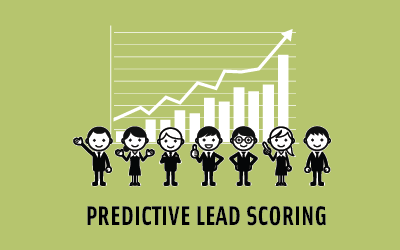You are viewing our site as an Agent, Switch Your View:
Agent | Broker Reset Filters to Default Back to ListWhy Agents Should Use Big Data and Predictive Analytics
March 13 2018
How (and why) can agents and brokers use algorithmic predictions to help find listings to build their businesses?
Good question.
The National Association of REALTORS states that 72 percent of sellers will list with the first agent they speak with, not necessarily with the most experienced agent. Therefore, big data and predictive analytics allow agents to focus their time and energy on those most likely to list.
Before big data and predictive analytics were introduced to the real estate market, agents may have attempted to produce similar results by assigning scores to people in their territories, including their spheres.

As an example, they might assign individuals a score of 1-5, depending on their knowledge of individual prospects and their intention to sell within a predictable period. The reality is that human beings are extraordinarily complex, and their buying and selling behavior is usually the result of hundreds of converging factors. To truly uncover predictions of human behavior, you need to analyze thousands of data points to reveal the multitude of patterns that lead to transactions. Attempting to complete this process and predict listing opportunity at a human's pace is daunting at best.
There is a solution. Big data and predictive analytics consider thousands of data points, providing in-depth information on the people living in the home, the history of the home itself, and the history of the market in which the home resides. Data in these areas are analyzed to identify who may be signaling a near-future selling date.
We all know the 80/20 rule. Eighty percent of yield comes from 20 percent of a farm. An agent's goal is to find the top 20 percent in their market. The reason agents mass farm a territory is because they are trying to find the top 20 percent. This is where big data and predictive analytics come into play.
An agent's goal is to find the top 20 percent in their market.
Let's take the Joneses, for example. Perhaps over the past 20 years, they move, on average, every five years and today has been four-and-a-half since their last move. That's interesting. But what if they also have two children who are about a year or less away from college? That's interesting too. Now consider that the Joneses' income history puts them in a category of homeowners who typically sell in year seven and it's now year six. Here, we see that three different attributes align—history of migration patterns, children and income. Those are just three attributes that line up. However, when you stack several hundred of them on top of each other, you no longer have a coincidence. You have statistical relevance.
This technology is all around us. A FICO score is simply a prediction of our likelihood to make loan payments on time. The department store Target made headlines when they showed they can predict accurately, using big data and predictive analytics, which of their customers are pregnant. Now, instead of telling everyone about their new baby products (mass farming), they just focus on this subset of customers (smart farming). This technology is not new; its usage is just new to those in the real estate industry.

Companies use these predictions to determine factors such as whom to contact, as well as when and why. Now real estate agents can too. Traditionally, farming is arduous and costly. Big data and predictive analytics will identify an agent's top 20 percent, eliminating the 80 percent that often prove to be wasted time, effort and marketing (think of all the mail that goes unopened or thrown away by the bottom 80 percent who have no intention of listing).
Of all the tools and technology now available to real estate agents for prospecting, big data and predictive analytics are the most robust. Nothing else currently matches these abilities at allowing agents to hyper-focus their time and energy on the right prospects.
To view the original article, visit the SmartZip blog.









